Is there anything worse than the thought of your dog carrying worms? The thought of those slimy, wriggling parasites inside our pets fills us with worry and dread. And, it’s for good reason too, as worms can cause illness in our pets and in ourselves too. This is because Toxocara canis, which is the common dog worm, can be passed on to humans. With that in mind, it is so important to treat worms quickly and efficiently. There are a number of different ways you can do this, and one option is to get rid of worms using everyday foods. Read on to discover the twelve foods that can help you treat worms in dogs.
Before you treat the worms your dog is experiencing, you need to know exactly what you are dealing with. There are a number of different dog worms, which are explained below…

Whipworm
Whipworms are around two inches long, and they are called whipworms because they are tapered at one end, just like a whip. They feed on your dog’s blood, attaching to the mucous membranes in the colon and cecum. Common signs of whipworms include weight loss, vomiting, and diarrhea. You won’t be able to see whipworms unless your dog passes them in his stool as a clump. There are a number of ways that your dog can pick up whipworms, including swallowing eggs in water, soil, and other places that could contain dog feces.
Hookworms
Hookworms have a hook that attaches to the intestinal lining. They are roughly 1/8 to ¾ inch in length. They are especially dangerous for small puppies because they can cause anemia in your dog. Signs of hookworms in your dog are similar to whipworm, including vomiting and diarrhea, as well as pale gums, lethargy and weakness. Your dog can pick up hookworm larvae from the soil, either through the skin on his pads or his mouth.
Tapeworms
Tapeworms live in the intestines, and they are around six inches long and flat. However, you will usually see broken-off segments that appear like grains of rice in your dog’s poo. If your dog has fleas, there is a good chance that he will have also picked up tapeworms. This is because your dog can get them by licking fleas off his body. Tapeworms can also be picked up by eating meat from other animals that may have tapeworms.

Roundworms
Roundworms live in the small intestine and they look a lot like spaghetti, and you will see worms in your dog’s poo. Your dog may also be feeling lethargic and look pot-bellied. Other symptoms can include weight loss, stomach pain, vomiting, and diarrhea. Your dog can pick up roundworms by eating infected animals like rodents or birds or by picking up the microscopic eggs from the environment.
Now that you are aware of the different types of worms, let’s take a look at the everyday foods you can use to treat them…
Bone Broth
So, let’s start with the food that is going to require a little bit of effort on your behalf. If you are up for some cooking, then bone broth is a good choice for getting rid of worms. All you need to do is add a few tablespoons to your dog’s food, or you can feed it to your dog as a separate snack. Bone broth is beneficial because it promotes your pet’s overall digestive health, which enables the immune system to be strong enough to eliminate worms. For an extra boost, add some aloe juice.
Related Post: Bone Broth for Dogs
Parsley
Next, we have parsley. This is probably an ingredient you cook with a lot, so why not give a cube to your dog? A cube of parsley each day can help your dog fight worms. You may be wondering what we mean by a cube – the best thing to do is cook fresh parsley down, strain out the solids, and then freeze it into ice cubes. Don’t simply give your dog a fresh bunch of herbs to munch down on.
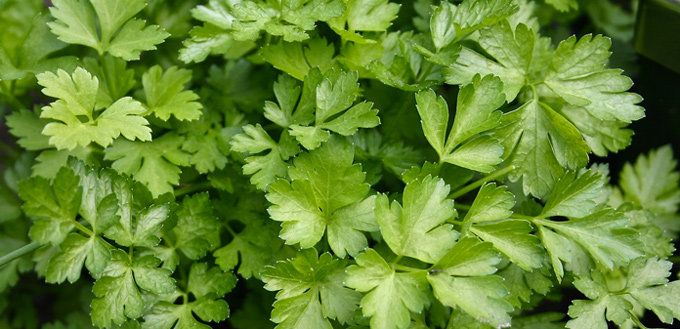
Coconut Oil
Coconut oil has become very popular over the past few years for humans, and it offers a number of benefits for dogs too. The best thing to do is slowly add this to your dog’s diet, building up to eventually giving them one teaspoon per day for every 10 lbs. of body weight. Coconut oil is especially beneficial if your dog is suffering from roundworms, as they tend to clump together in the intestine, which can lead to an obstruction. Coconut oil can stop this from happening.
You May Also Like: Coconut Oil For Dogs

Apple Cider Vinegar
When using apple cider vinegar to treat worms, make sure it is unfiltered, organic, and raw. This is a beneficial choice because it creates a more alkaline digestive system, which is less attractive to parasites. You can simply add anything from ¼ to one teaspoon to your dog’s food or water.
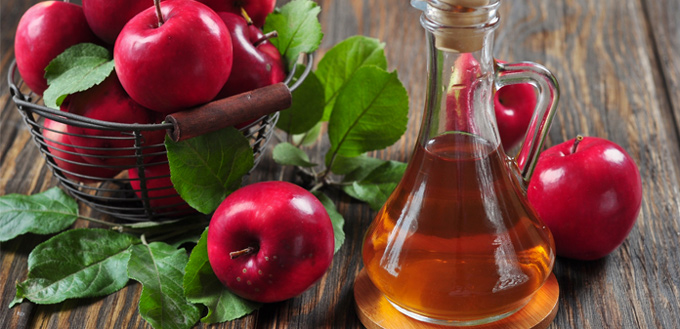
Garlic
A lot of people assume that garlic is bad for dogs, but this is not the case; it actually offers a number of benefits, so long as you give it to your dog in moderate amounts. You do need to be mindful of giving your dog too much. Simple use one teaspoon or one clove of raw organic garlic per 30 lbs. of your dog’s body weight. Make sure the garlic is chopped up into small amounts.
You May Also Like: Garlic For Dogs
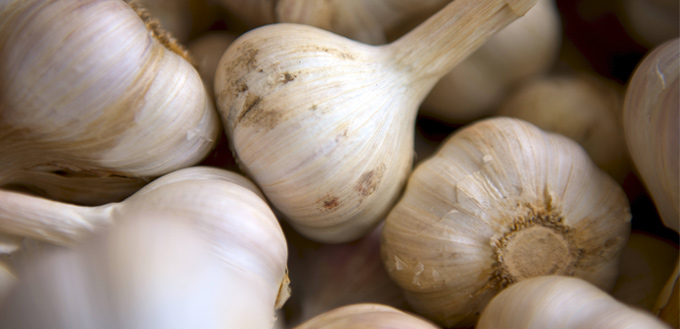
Pomegranate
Another food that is useful in treating worms is pomegranate. This is especially beneficial if your dog is suffering from tapeworms. Generally, vegetables and fruit can make up around 20 percent of your dog’s diet; so do bear this in mind with the rest of the foods that are going to be mentioned. If your dog is not used to eating such produce, avoid digestive upset by starting gradually.
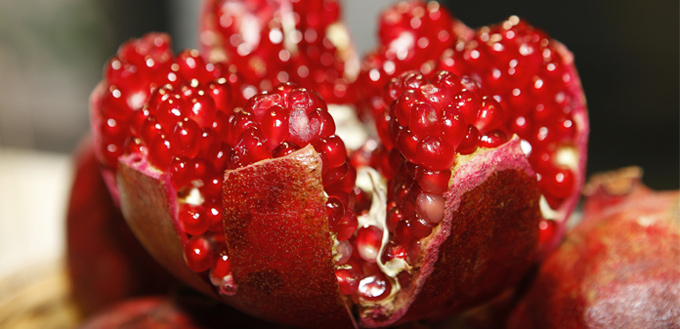
Pineapple
Pineapple, including the stems, is beneficial because it is packed with Bromelain. Bromelain is an enzyme that digests protein.
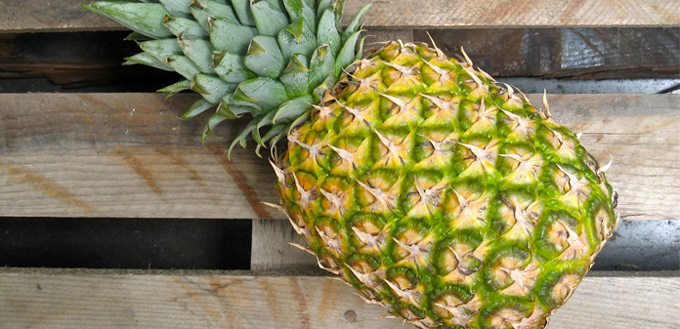
Papaya
Papaya is beneficial because it contains papain, which is another enzyme that can assist with combating worms. For all fruits, around one tsp. per ten lbs. of your dog’s body weight is a good idea. You can give fruit to your dog as a separate snack or you can add it to your dog food.
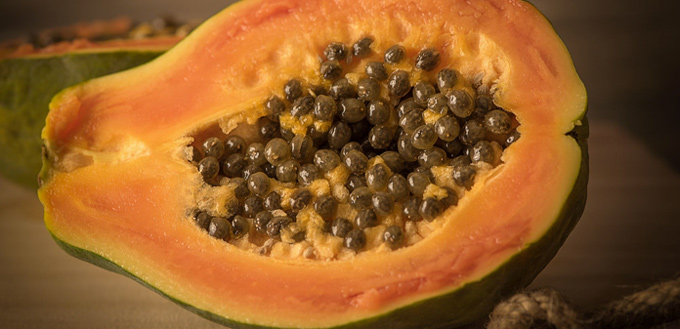
Cucumber
You can easily add chopped cucumber or grated cucumber to your dog’s food to treat worms.
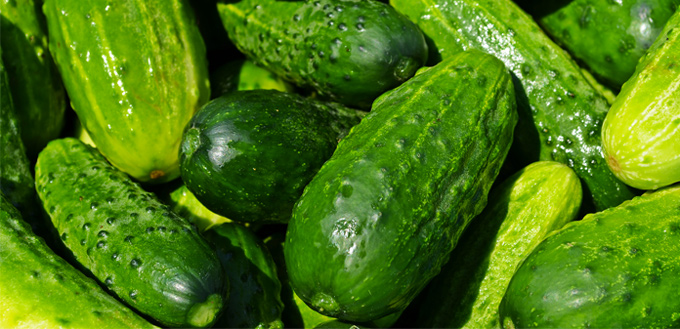
Kefir
Kefir is a fermented food that you can use to treat worms. It is better to use raw goat milk Kefir or coconut Kefir, as non-dairy is always better for your dog. You can buy this at a health food store or grocery store, or you can make your own. Give this to your dog as a separate snack or treat or add it to their food. For large dogs, two to three tablespoons per day are advised. For medium dogs, one to two tablespoons per day will be sufficient, and for small dogs, between one teaspoon and a tablespoon is ideal.
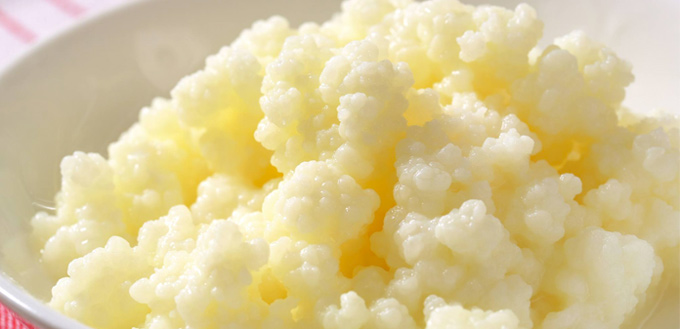
Pumpkin Seeds
Pumpkin seeds are beneficial for your dog for a number of different reasons. You should grind the seeds, and add around ¼ tsp. per 10 lbs. of weight. This is actually one of the most effective and safest ways to treat worms.
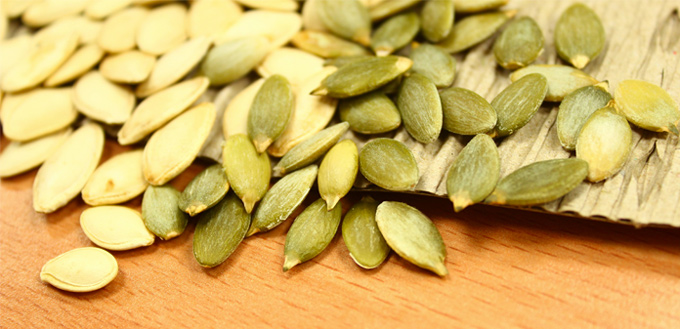
Fermented Vegetables
Last but not least, we have fermented vegetables. Fermented vegetables present one of the safest ways to treat worms. You can easily buy kimchi, sauerkraut, and other fermented vegetables from grocery stores, or you can make your own. When giving your dog fermented vegetables, start slowly and build up to between one and three teaspoons per day based on 20 lbs. of body weight. If you want to make your own fermented vegetables, it is not as difficult as it may sound. To make fermented carrots, you should place some carrots in a jar. In a separate jug, add some salt to distilled or filtered water, allowing it to dissolve. You should then add the brine mix to the carrots, ensuring they are completely submerged. Cover the jar with an airtight lid and leave the carrots to ferment. To do this, place the jar in a cupboard for a couple of days until the carrots get to the desired texture. Once this has been achieved, you can move the carrots to the fridge.
So there you have it; the 12 everyday foods that you can use to treat worms. It is likely that you already have a number of these foods in your home at the moment. Of course, the first step to take is to diagnose the type of worm that your dog is suffering from. You can use the advice above to determine whether it is a roundworm, tapeworm, hookworm, or whipworm. Once you have done this, you can then determine the best everyday foods to use to treat it.
Sources:
- Hector Joy, DVM, How to Get Rid of Worms in Dogs, PetMD
- Gastrointestinal Parasites in Pets — Preventing and Treating These Bugs, Vetstreet





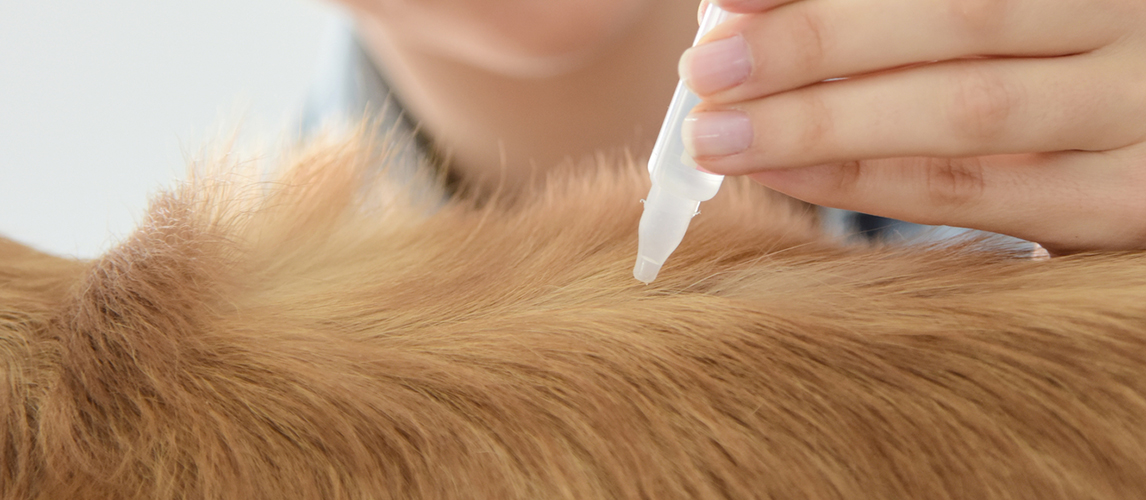

Thanks for the helpful information
Will Honey help in my Dog for tapeworms
And also Coconut dried Oil
Does Honey help for tapeworms
I have a dig he’s 2 years old he’s been licking and licking his butt haven’t seen any worse yet but haven’t look in his poo going to try the vinger how long do i give him tbe vinger ? How many times a day how many days?